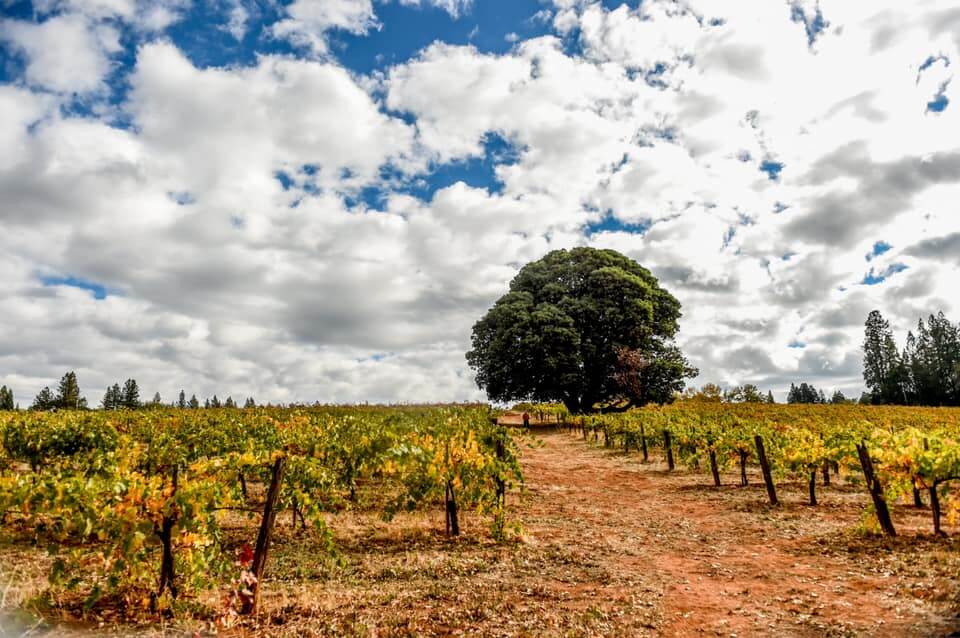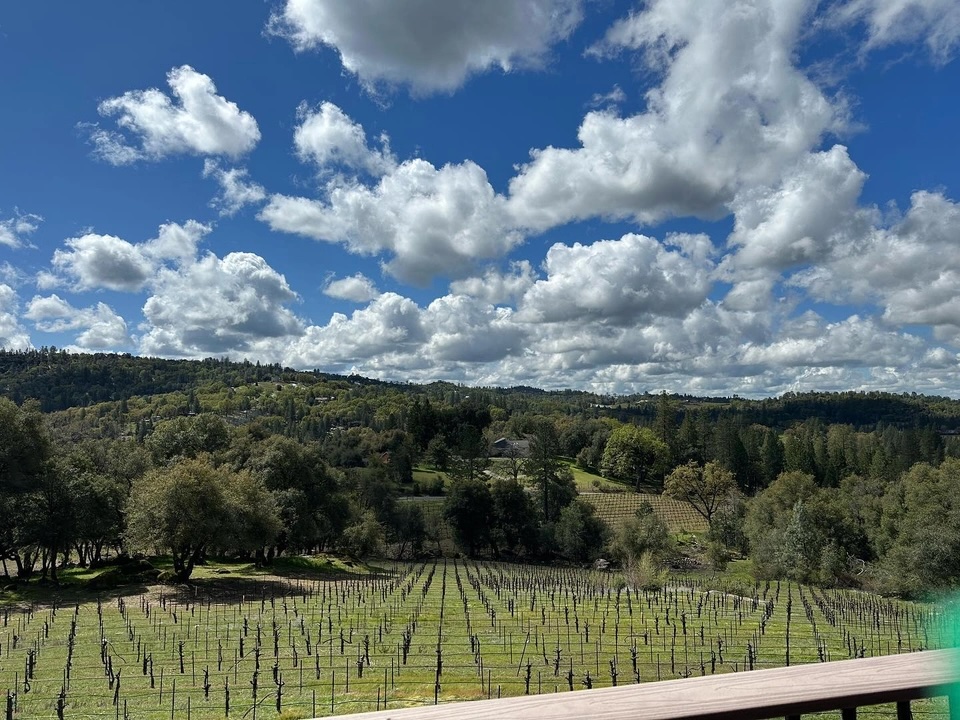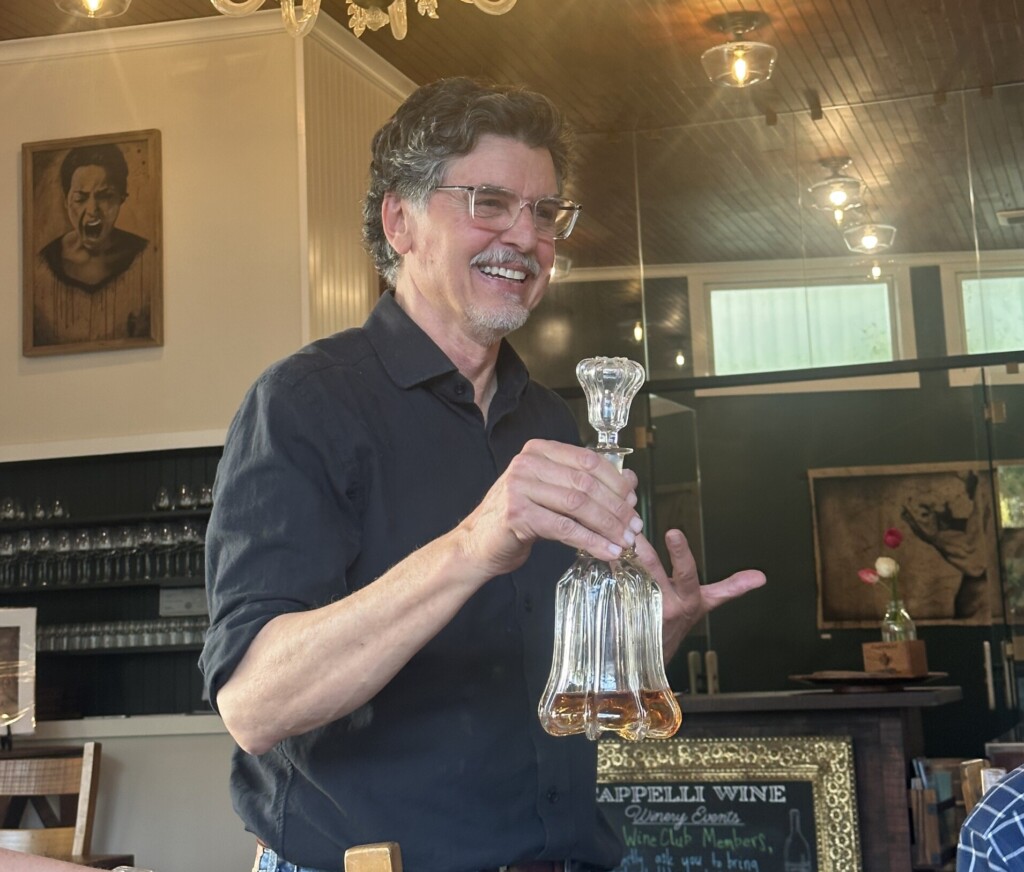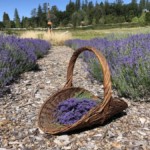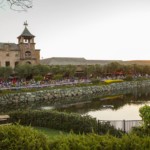Madroña Vineyards in Camino is one such gem.
Madroña was founded in 1973 by Dick and Leslie Bush when they planted the winery’s first vineyard on 32 acres at approximately 3000 feet elevation. At the time, it was one of the highest elevation vineyards in California.
As son Paul, now the owner and operator with his wife Maggie, explains,
“This area used to be famous for grapes in the 1800s at a much lower elevation. We were pushing the envelope on the elevation aspects here at 3000 feet. You could say my parents pioneered it because nobody else was [planting grapes] at this elevation. They took the chance and planted all 32 acres. It wasn’t until much later that we found out that Ed Delfino, who was El Dorado County’s Agricultural Commissioner at the time, had wanted my dad to plant five acres as an experimental plot.”
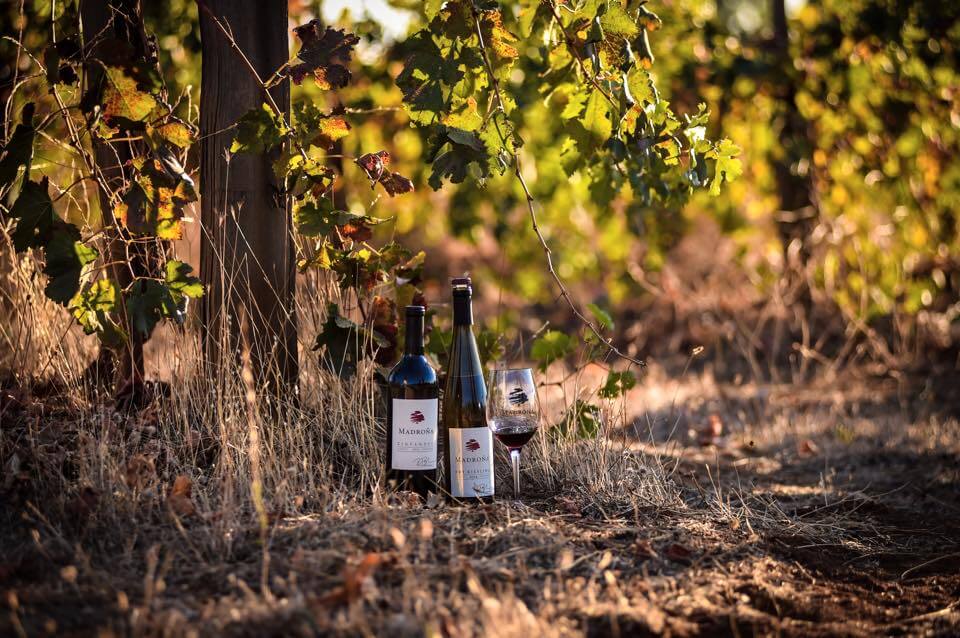
The experiment paid off
One of the reasons that Dick Bush believed grapes would grow well on his land was that the same plant that grew in the high-quality wine grape-growing regions of Sonoma, Napa, and Mendocino was present on his property. That plant was the Madrone, a non-transplantable shrub that likes well-drained soil and a cooler, moderate climate – just like premium wine grapes. It was both a good sign and the namesake for Madroña.
Paul, like his siblings, spent his youth working in the winery. As he put it,
“If you ever grow up in an agricultural family or even a family that has its own business, when you go to college, you can’t get away from the business fast enough. All your summers were behind hot glue machines, labeling bottles, or working in the vineyard.”
You can go home again
Despite that desire to escape the family business, after several years, plenty of travel, and finding the perfect partner, Paul returned with Maggie. Today, Madroña makes 100% estate-grown wines with over 25 Rhone and Bordeaux varietals that range from Petit Verdot to new world ports.
And it’s a true family-run business. Paul serves as winemaker and vineyard manager, and Maggie runs the company as general manager. They share the marketing, which includes a delightful email newsletter filled with wry humor and observations on everything from running a family business to their latest wine releases.
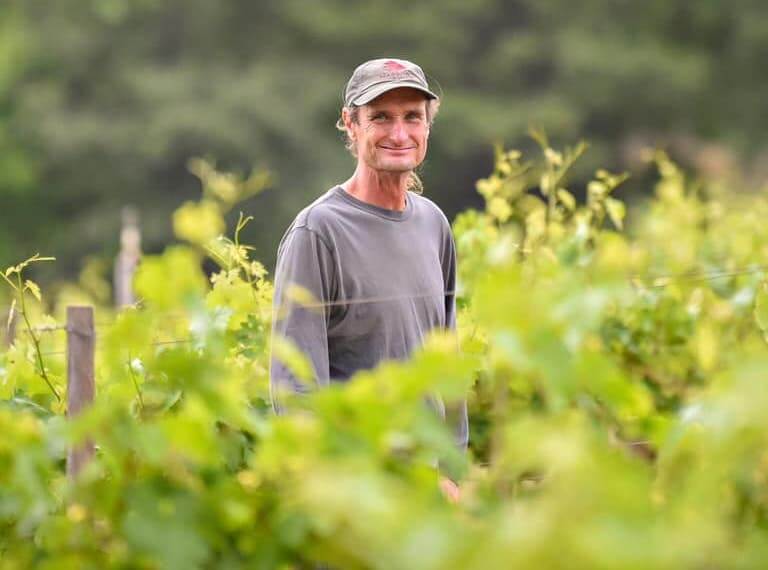
Most recently, they’ve embraced the nimbleness required by the ever-changing COVID tiers and introduced virtual tastings and pop-up Zoom calls to chat about wine and other topics.
Everybody has your back
For Paul, what makes El Dorado County unique is its community, one that transcends education, industries, and politics.
“We have a sense of community in this county where people come out just like during the pandemic, with locals supporting the wineries, local restaurants for takeout, and other local businesses.”
Buying local, choosing local contractors, and supporting local nonprofits are all examples of the community understanding that they’re all in this together.
Even if everybody doesn’t always agree.
